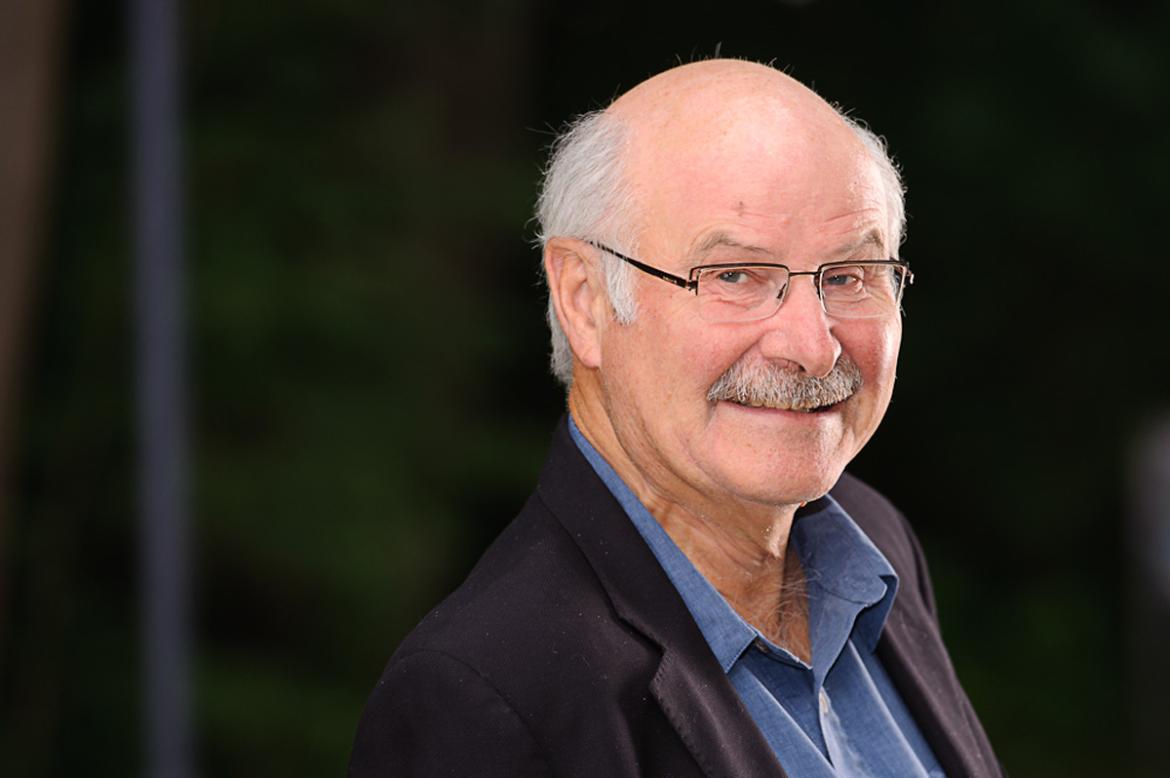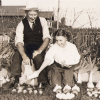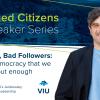
Mike Harcourt will receive an Honorary Doctorate of Laws at VIU’s Convocation ceremony on Friday, Jan. 29.
January 28, 2016 - 1:00pm
British Columbia’s 30th Premier, Michael Harcourt will accept an Honorary Doctorate of Laws at Vancouver Island University’s convocation ceremony on Friday, Jan. 29 in recognition of the many contributions he has made in an exemplary career as a lawyer, community activist and politician.
“Mike Harcourt has played a key role in the political and social development of BC and Canada,” said Dr. David Witty, Vice-President Academic and Provost, and nominator. "Mr. Harcourt is a passionate believer in the power of cities and communities to improve the human condition. His focus on sustainable development, conservation, and leadership in settling Aboriginal treaties in this country are hallmarks of a remarkable career in public service.”
After completing a Bachelor of Arts in Political Science and English followed by a law degree at the University of British Columbia (UBC), Harcourt started the first “storefront” law office in Canada, and established the UBC law school legal advice clinic.
Harcourt went on to serve four terms as a Vancouver Alderman (1972-80), followed by three terms as the Mayor of Vancouver (1980-86). In that position, leading up to EXPO 86, he played a prominent role in establishing Vancouver as one of the world’s most livable cities through effective land use and planning.
As Premier from 1991 to 1996, Harcourt established the Growth Strategy Act to promote regional sustainability and improve quality of life in urban areas; helped to establish BC’s Treaty Commission; and permanently preserved more than 12 per cent of BC’s land base, establishing 500 new protected areas. One of these was the jointly shared ecosystem of the Tatshenshini River and Alaska’s Glacier Bay National Park.
Harcourt said he considers the years he spent working on his undergraduate and law degrees as important in honing the critical thinking and analytical framework that he would go on to apply to issues in his city, province and country as a lawyer, activist and politician.
A year of travel between third and fourth year in his undergraduate degree further shaped his approach to his career and political life. Travelling and living in Pacific Rim countries, he observed poverty, environmental issues and the lack of freedom and democracy in countries run as dictatorships.
He considered the idea of working overseas. “I thought they needed more engineers and nurses, teachers and economists than lawyers,” he said. “So, I thought, why don’t I deal with some of the key problems we have here, like the problems poor people have.”
His storefront law office was born of this idea, and led him to activism in the city of Vancouver on behalf of people who needed advocacy in a wide variety of issues they faced.
Harcourt recalls one “really dumb idea” that propelled his early activism.
“That was [a proposal for] an elevated freeway along the waterfront of Vancouver. The Chinese community and the inner city communities asked me to be their lawyer to stop the city, provincial and federal governments from going ahead with the idea.”
Working with citizens and neighbourhood groups, Harcourt was successful in stopping an urban project that would have destroyed Gastown and Chinatown, built an eight-lane freeway through the eastside neighbourhoods, and replaced fine old buildings with the kind of low income housing that was predestined to become slums.
“It changed the way we planned in the city,” Harcourt said of that early success.
Harcourt has also been a strong supporter of Aboriginal economic development and deeply committed to the treaty process for First Nations people in Canada.
“Treaties will supply three-quarters to two-thirds of the capital and revenue and self-government capacity for First Nations to move from being welfare reserves under the Indian Act to being self-governing, economically self-sufficient communities,” he said.
To ensure success for First Nations students, Harcourt is co-chairing Dogwood 25, which currently works with the Vancouver School Board and which he hopes to see partner with post-secondary institutions such as VIU in future. The organization seeks to increase high school graduation rates of Aboriginal students, with a goal of matching the graduation rate of non-Aboriginals – around 85 per cent – by 2025. Currently, Aboriginal graduation rates stand at about 67 per cent, he said.
As a self-described “recovering politician,” Harcourt is involved on a wide range of organizations, while also working on several new and ongoing business ventures.
He is currently chair of the Advisory Board for the University of British Columbia’s Centre for Interactive Research on Sustainability. In addition to acting as chairman of Quality Urban Energy Systems for Tomorrow, he is the lead faculty in The United Way's Public Policy Institute. In 2014, he became a member of Canada’s ECOFISCAL Commission, and AGE-WELL Board chair, for the national research and training network of university, industry and public sector partners aimed at helping older Canadians to maintain their independence, health and quality of life.
He remains deeply connected to his city of Vancouver, including ongoing work to eradicate homelessness in the downtown east side.
“My really special project is the Aboriginal Mother Centre, which is just an incredible miracle of a success story,” he said.
The centre provides housing for Aboriginal mothers and their children who are homeless, at risk of homelessness, and helps mothers who have had or may have their children apprehended.
“I’d like to see it get properly funded and be a model right across the country, and be one of the outcomes of what is going to be a very expensive inquiry into the 1,000 missing women which is going to tell us the obvious,” Harcourt said.
VIU’s first graduates of 2016 will welcome Harcourt on Friday for remarks at convocation as he accepts his Honorary Doctorate of Laws. This honour will be added to a long list of recognition for his work, including the Woodrow Wilson Award for Public Service, the Canadian Urban Institute’s Jane Jacobs Lifetime Achievement Award, and the Order of Canada.
-30-
MEDIA CONTACT:
Shari Bishop Bowes, Communications Officer, Vancouver Island University
P: 250.740.6443 C: 250.618.1535 E: Communications@viu.ca
Tags: In the Community





